Farming
No direct contact needed for bTB
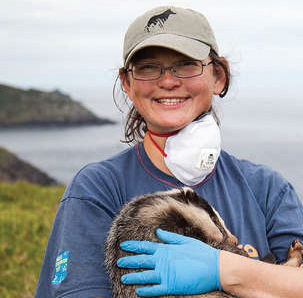

Prof Rosie Woodroffe: ‘Hard to offer farmers advice’
NEW findings from the Zoological Society of London (ZSL) and Imperial College London suggest that badgers and cattle rarely meet – and that direct contact between the two is not a likely source of transmission of bovine TB.
The stated aim of the badger culls, which began as pilots intended to trial ‘controlled shooting’ of free running badgers in two areas of South West England, but were expanded to include the more expensive trap-and-shoot and a new cull zone before the initial trial period had finished, was to reduce the ‘wildlife reservoir’ of bovine TB in badgers.
The new research shows that while badgers do favour cattle pasture as a habitat, they typically avoid cattle themselves and rarely get close enough to transmit infection directly. In the study, researchers used GPS collars to track the movements of badgers and cattle across 20 farms in Cornwall. They didn’t find a single incidence of badgers and cattle coming face to face and said that, if anything, badgers tended to avoid larger animals, preferring to keep 50m between themselves and cows.
They said that any bovine TB transmission between the species is likely to come from their shared environment – possibly from infected urine or faeces in pastures, possibly from other cattle as well as badgers – rather than direct contact. Imperial College London researchers said their discovery means advice to farmers on controlling bTB may require a rethink and ‘paves the way for novel approaches to managing this controversial disease’.
BTB HARD TO CONTROL
The findings could shed light on just why bTB is so hard to control, even when badgers and cattle are being culled, because the bacteria that cause the disease can persist in the environment for months.
Earlier research from the government’s Animal Health and Veterinary Laboratories Agency (AHVLA, now APHA) which used surveillance cameras on 75 farms to look at possible ways of badger-proofing farms captured footage of badgers attempting to access cattle feed in sheds and fields. Defra said its bTB control strategy still includes wildlife-proofing high risk farms.
Discussing the recent findings, Professor Rosie Woodroffe, a senior ZSL researcher and a visiting professor at the School of Public Health at Imperial, who has spoken out against the government’s badger culling policy, said: “It has been known for a long time that badgers can transmit TB to cattle – but without knowing how they do it, it is hard to offer farmers advice on the most promising ways to protect their herds.
“Our study provides the strongest evidence yet that transmission is happening through the environment, helping to explain why controlling TB is so difficult. This work marks the first step towards identifying more effective ways to reduce transmission between badgers and cattle, and also potentially better ways to manage cattle-to-cattle transmission as well.”
It has long been known that badgers can pass bovine TB on to cattle, but an increasing body of research has shown that patterns of infection are very complex – that cattle-to-cattle transmission is the most common source of bTB on farms and that cattle can pass the disease to badgers – and this means badgers’ role in transmitting the disease, which can also affect a host of other wild and domestic species, is unclear.
‘NO CERTAINTY’
Speaking to the BBC, Prof Woodroffe said: “There are loads and loads of things that farmers are being advised to do and there is no certainty that any of them will actually work and because of this, hardly any farmers implement any of these sorts of measures. If we can focus on the things most likely to work on that massive array of things farmers are being advised to do, more people will do them.”
The researchers, whose work was funded by Defra, are now scanning fields to see where TB bacteria are present.
Defra is expected to announce that its highly controversial cull will be expanded into new areas of the South-West later this summer.
A COMPLEX DISEASE
A NFU Cymru spokesperson said: “Bovine TB is a complex disease that must be tackled in the round, including addressing wildlife disease reservoirs, if we are to stand any chance of eradicating the disease. The role played by badgers in the spread of bovine TB is well known and widely accepted. Badgers are recognised as a significant wildlife reservoir of the disease in areas where it is endemic. Research has shown that badgers could contribute to up to 50% of cattle herd TB breakdowns in areas where the disease is rife.
“NFU Cymru has always said that we must use all options available if we are to stand a chance of controlling and eradicating this devastating disease. Cattle movement controls, cattle testing and on-farm biosecurity all have a vital role to play in a TB eradication plan, but experience from across the globe and indeed from our neighbours across the border in England and across the Irish Sea, have shown that a genuine TB eradication plan must also include a strategy for dealing with the disease reservoir in wildlife, in areas where it is endemic.
“From its inception, NFU Cymru has consistently raised concerns about the cost and effectiveness of the Welsh Government’s badger vaccination policy in the Intensive Action Area (IAA) in North Pembrokeshire. Four years in to what was supposed to be a five year programme, a global shortage of the BCG vaccination has led to its premature curtailment. A bovine TB wildlife strategy predicated solely on the vaccination of badgers is not a viable or sustainable policy option.
“Farmers in the IAA and across the whole of Wales are playing their part in bearing down on the disease t h r o u g h s t r i n g e n t cattle control measures, but the reservoir of infection that exists in wildlife has not been confronted. If the Welsh Government is genuine about eradicating Bovine TB in Wales then it has to implement a policy of targeted culling of badgers in areas where the disease is endemic that will actively remove the disease from the badger population in these areas.”
NO NEW EVIDENCE
A Welsh Government spokesperson told The Herald: “We are fully aware of this interesting work by Professor Rosie Woodroffe, which we have discussed with her in some detail.
“We remain committed to a science-led approach to the eradication of bovine TB. Our current programme includes the testing of cattle, strict biosecurity measures and movement control. This is aimed at tackling all sources of infection. The latest statistics show the number of new TB incidents in the 12 months to April 2016 reduced by 17%.
“We will continue to study all the available evidence relating to the transmission and prevention of bovine TB and are considering how Professor Woodroffe’s observations might feed into continued development of our TB programme. The Cabinet Secretary will make a statement on the Welsh Government’s refreshed TB eradication programme in the autumn.”
FUW Senior Policy Officer Dr Hazel Wright told us: “The latest study by Professor Woodroffe and colleagues provides no new evidence on the issue of bovine TB transmission. The FUW has long recognised that infected badgers can contaminate both pasture and housing via the excretion of M. bovis bacilli in urine, faeces, sputum and exudate from open abscesses.
“Farmers continue to adhere to strict cattle testing, movement and biosecurity measures in an attempt to reduce the level of transmission from badgers to cattle. However, in the absence of any badger control mechanisms, such cattle measures will only have a limited effect on disease eradication whilst having a very significant emotional and financial impact on farm businesses.”
Farming
Basic Payment Scheme 2025 balance paid to 95% of Welsh farmers
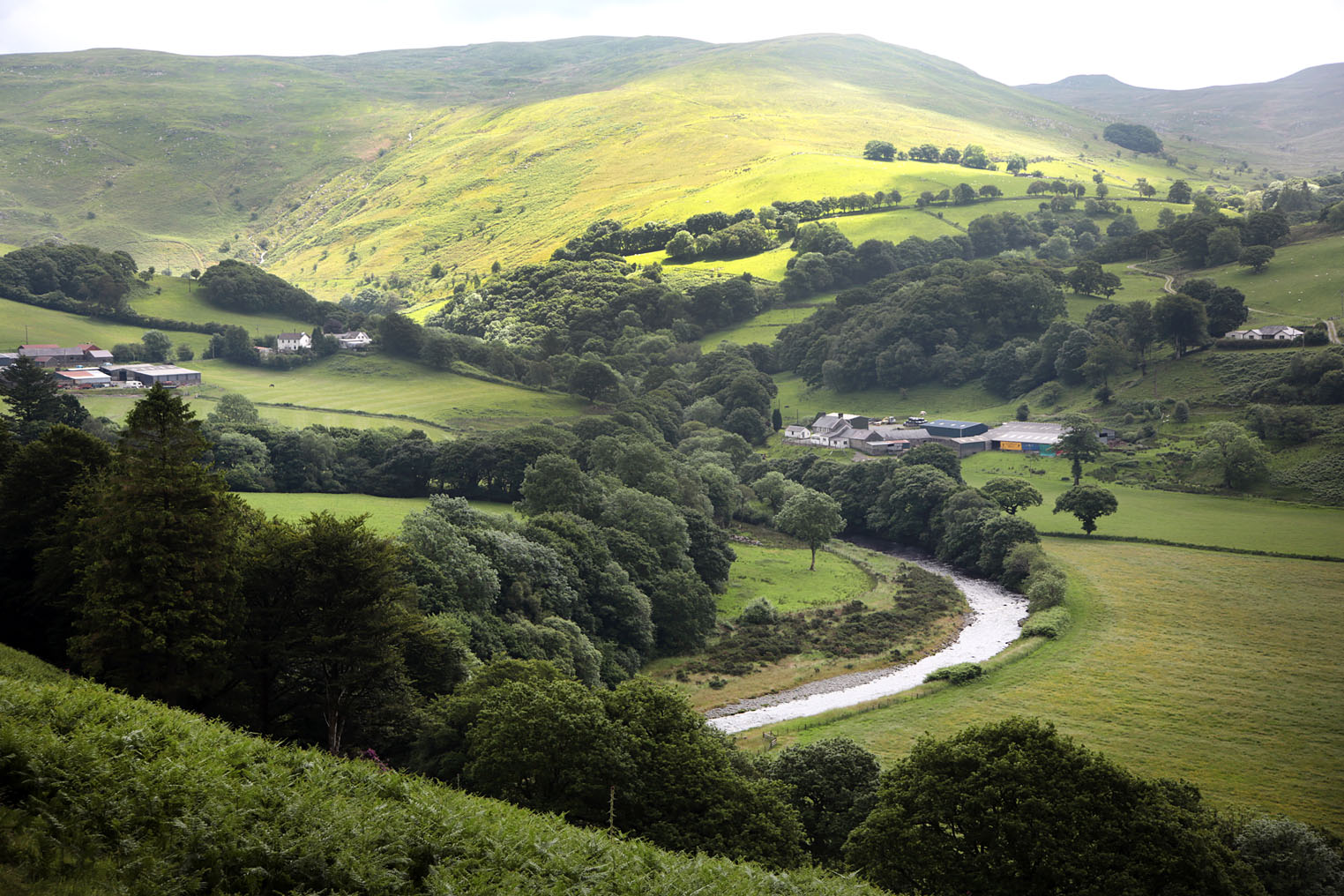
Final year of BPS as transition to Sustainable Farming Scheme begins
The WELSH Government says more than ninety-five per cent of farm businesses have now received their full or balance payment under the final year of the Basic Payment Scheme (BPS), ahead of the introduction of the new Sustainable Farming Scheme (SFS) in 2026.
Announcing the update on Friday (Dec 12), Deputy First Minister and Cabinet Secretary for Climate Change and Rural Affairs, Huw Irranca-Davies, confirmed that over 15,400 Welsh farm businesses have been paid £68.7m. This comes on top of the £160m issued in BPS advance payments since 14 October.
Final round of BPS payments
The Basic Payment Scheme, which has been the backbone of farm support in Wales for a decade, provides direct income support to help farmers plan and manage their businesses. BPS 2025 marks the last year in which full BPS payments will be made before the scheme begins to be phased out.
The Cabinet Secretary said officials would “continue to process the outstanding BPS 2025 claims as soon as possible,” adding that all but the most complex cases should be completed by 30 June 2026.
Payments issued today represent the main balance due to farmers following earlier advances, giving many businesses the cash flow they need during the quieter winter period—traditionally a challenging time in the agricultural calendar.
Shift to Sustainable Farming Scheme in 2026
From 1 January 2026, the Welsh Government will begin rolling out the Sustainable Farming Scheme, a major reform to how agricultural support is delivered. The SFS will reward farmers for environmental outcomes such as habitat management, carbon reduction and biodiversity improvements, alongside continued food production.
The government has argued that the new scheme is essential to meeting Wales’ climate and nature targets while ensuring long-term resilience in the sector. However, the transition has been closely watched by farming unions, who have raised concerns about the administrative burden, income stability, and the speed at which BPS is being phased out.
Mr Irranca-Davies reaffirmed the government’s stance, saying: “This government is steadfastly committed to supporting Welsh farmers to sustainably produce quality food. This is demonstrated today in our payment of the BPS 2025 balance payments and will continue throughout the transition period.”
Sector reaction
Farming unions are expected to scrutinise the detail of today’s announcement, particularly around remaining unpaid cases. Last year, late payments led to frustration in parts of the sector, with unions calling for greater certainty as the industry faces rising input costs, supply chain pressures and continued market volatility.
The move to the SFS remains one of the most significant agricultural policy changes in Wales since devolution. Ministers insist the shift is designed to support both food production and environmental stewardship, while critics warn the transition must not undermine farm viability—especially for family-run livestock farms that dominate rural areas such as Pembrokeshire, Ceredigion and Carmarthenshire.
What happens next
Farmers still awaiting their BPS 2025 balance will continue to be processed “as soon as possible”, the Welsh Government said. Officials will also publish updated guidance on the Sustainable Farming Scheme ahead of its launch.
The coming year will therefore become a pivotal moment for Welsh agriculture, as the long-standing BPS framework—which provided over £200m annually to Welsh farmers—makes way for a new results-based model that will shape the industry for decades to come.
Community
Wolfscastle farm’s new shed sparked ‘noise nuisance’ claims
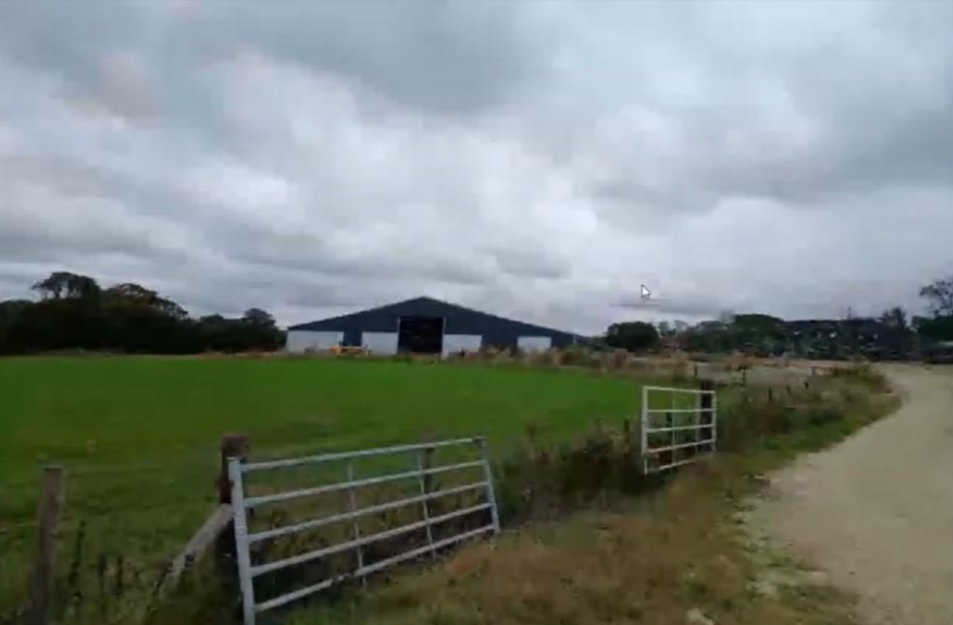
A PEMBROKESHIRE farmer “jumped the gun” in his enthusiasm to build a new cattle shed which includes ‘robot slurry scrapers’ that have been causing a noise nuisance for neighbours, county planners heard.
In a retrospective application recommended for approval at the December meeting of Pembrokeshire County Council’s planning committee, Aled Jenkins sought permission for a replacement cattle housing and silage clamp at Upper Ty Rhos, Wolfscastle.
An officer report said Upper Ty Rhos consists of a herd of 630 youngstock beef cattle, the applicant seeking permission for the replacement 100-metre-long cattle housing building.
It said the building benefits from a robotic scraping system to internally clean it to improve animal welfare and efficiency.
However, the slurry scraper system in operation has been found to constitute a statutory noise nuisance.
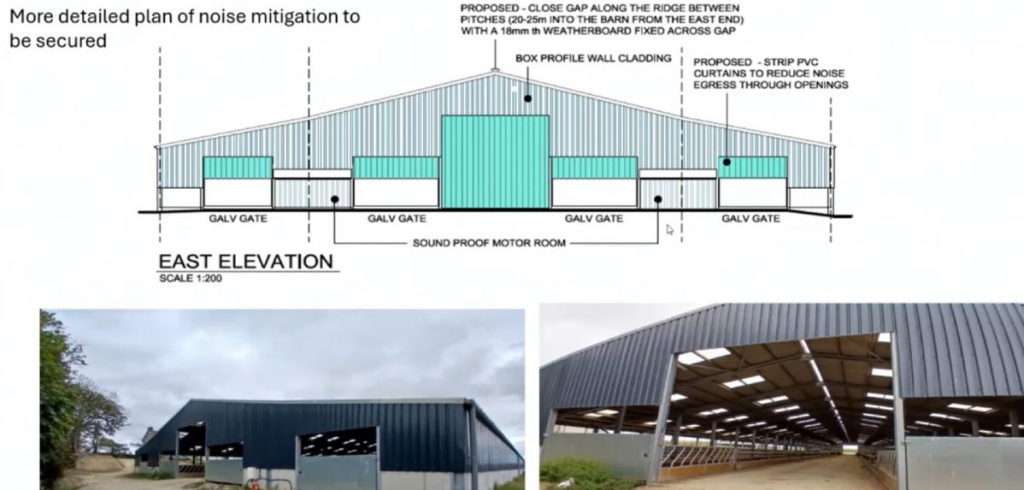
“The introduction of the slurry scraper system has resulted in a new noise source to the locality that is having a significant detrimental impact upon local amenity. The nuisance noise is directly associated with the extended hours of operation of the slurry scraper system and the noise created by the two motors powering the system including the drive mechanism that moves the scraper through the building to remove slurry produced by the housed cattle.
“To further exacerbate the situation, the building has open voids to the eastern gable end, which is within close proximity to the neighbouring property resulting in the building being acoustically weak.
“An acoustic report has been submitted with mitigation methods provided including relocating motors and associated equipment into external enclosures, reduction of noise egress through openings by installing hit-and-miss louvres and/or PVC strip curtains and consideration of blocking the gap between roof pitches along the ridge of the building.”
Three letters of concern were received from members of the public raising concerns including visual and environmental impact, noise issues and a potential for the herd size to increase.
Speaking at the meeting, neighbour Dr Andrew Williams, who stressed he was not seeking to have the shed removed, raised concerns about the noise from the ‘robot scrapers,’ exacerbated by cattle being concentrated in the immediate area from the wider farm complex.
Agent Wyn Harries addressed concerns about the retrospective nature was a result of over-enthusiasm by his client who “jumped the gun”.
He said there was now a scheme that was “fully worked through,” dealing with noise and other issues.
Members backed approval, which includes noise mitigation to address the impact of the robot scrapers; one member, Cllr Tony Wilcox, abstaining on the grounds of the retrospective native of the building “the size of a football field”.
Farming
FUW urges government action as plunging dairy prices threaten family farms
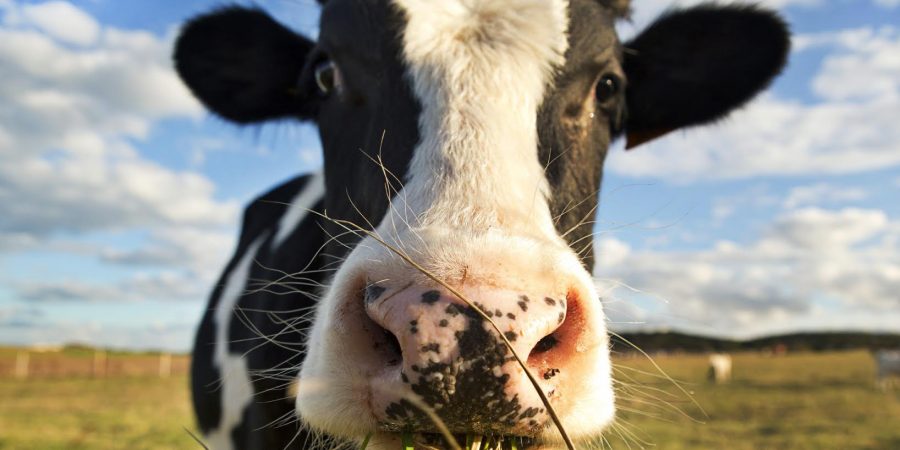
THE FARMER’s UNION OF WALES has sounded the alarm over a sharp and sustained collapse in dairy prices, warning that the situation is placing intolerable pressure on family farms already grappling with regulatory change, rising costs and wider economic uncertainty.
The Union convened an emergency meeting of its Animal Health and Dairy Committee last week to assess the scale of the crisis. Representatives from across Wales reported widespread anxiety, with many members seeing milk prices fall dramatically through the autumn. Processors are now signalling further cuts in early 2026, while commodity markets offer little sign of stability heading into spring.
Farmers, fearful of jeopardising commercial relationships, have approached the FUW confidentially to express grave concern about projected milk payments for the coming months. Many say the offers being made will fall far below the cost of production.
Average milk prices are forecast at just 30–35 pence per litre, against estimated production costs of 39–44 pence per litre (Kite Consulting). On current trajectories, the FUW warns a typical Welsh dairy farm could lose thousands of pounds per month for as long as the downturn persists.
Following its committee meeting, the Union raised the matter directly with Deputy First Minister Huw Irranca-Davies MS during talks in Cardiff on Wednesday, December 3. Officials stressed the immediate threat facing family-run dairy farms and called for urgent consideration of government support to prevent long-term damage to the sector.
Gerwyn Williams, Chair of the FUW Animal Health and Dairy Committee, said the pace of the price crash was “unprecedented”.
“Farmers are facing an impossible situation where input costs remain high while the value of their product plummets. The viability of many family farms is now at serious risk. We need immediate assurances that this crisis is being treated with the urgency it deserves.
“Some can weather a short storm, but rumours that this could continue into summer 2026 will see businesses shut. These modest family farms have already invested heavily to meet regulatory requirements. Cuts on this scale will severely impact their ability to service repayments.”
FUW Deputy President Dai Miles warned that the consequences extend far beyond farm gates.
“Dairy farming underpins thousands of jobs in Wales and is central to the economic, social and environmental fabric of rural communities. When prices fall this sharply, it isn’t just farmers who suffer — local businesses, services and entire communities feel the impact.
“We have made it clear to the Deputy First Minister that government must work with the industry to provide immediate stability and a long-term resilience plan.”
The FUW says it will continue to work with the Welsh Government, processors and supply-chain partners to seek solutions and secure fair, sustainable prices for producers.
-

 Crime5 days ago
Crime5 days agoPhillips found guilty of raping baby in “worst case” judge has ever dealt with
-

 Crime4 days ago
Crime4 days agoKilgetty scaffolder sentenced after driving with cocaine and in system
-

 Crime4 days ago
Crime4 days agoHousing site director sentenced after failing to provide breath sample following crash
-

 Crime4 days ago
Crime4 days agoMotorist banned for three years after driving with cannabis in system
-

 Education3 days ago
Education3 days agoTeaching assistant struck off after asking pupil for photos of her body
-

 News6 days ago
News6 days agoJury retires tomorrow in harrowing Baby C rape trial
-

 Crime22 hours ago
Crime22 hours agoMan spared jail after baseball bat incident in Milford Haven
-

 Crime4 days ago
Crime4 days agoMilford Haven pensioner denies exposure charges


























